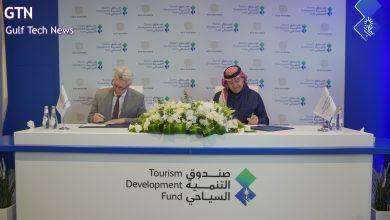How GCC banks can turn ESG into future opportunities for growth – Latest report by Strategy&

On average, one third or 34% of the banks across the GCC now publish sustainability reports, versus virtually none five years ago. Banks in the Gulf Cooperation Council (GCC) are yet to take full advantage of the concept of environmental, social and governance (ESG) issues, despite countries in the region being engaged in an ambitious energy transition towards sustainability, according to the latest report by Strategy& Middle East, part of the PwC network,
The report, ‘Achieving environmental, social, and governance impact – The business agenda of the future for GCC banks’, revealed that, in the GCC, banks too often confine ESG efforts to reporting, where they have improved considerably compared with a few years ago.
Dr. Yahya Anouti, partner with Strategy& Middle East, said: “ESG is about more than reporting and not exclusively about doing good for the environment or the society. It can also be a business opportunity to reduce costs, increase productivity and revenues, and meet the needs of ESG-centric customers. By leading on ESG issues, banks generate ESG and bottom-line impact.”
Overall, global sustainable investment assets grew from US $13.3 trillion in 2012 to $40.5 trillion in 2020, with shares of global professionally managed assets increasing from 21 percent to 35 percent during that time frame. In 2020, the Dubai Financial Market launched its first ESG index, while the value of green bonds issued in 2020 in the Middle East was almost twice that of those placed in 2014. Similarly, in 2020, the Saudi Electricity Company placed the first green bond that was compliant with Islamic law (sharia) in international markets.
GCC banks, like their global peers, are experiencing growing pressure from stakeholders such as regulators, employees, investors, and customers to increase their ESG activity. ESG lending could include supporting the development of renewable energy assets and the reduction of emissions, enabling the circular economy or using ESG principles to reduce greenhouse gas (GHG) emissions and operating costs, for example, by cutting back on business travel.
Improvements are underway. According to a 2021 PwC survey, 46 percent of CEOs in the Middle East aim to increase their investments in ESG and sustainability initiatives over the next three years.
Aurelien Vincent, partner with Strategy& Middle East said: “GCC banks can now move quickly to embed ESG issues in their business strategy and create the necessary structural changes in their operating models to pursue these new strategies. Then they can capture the value of implementing those changes, as some banks in the region have already done.”
The report outlined that GCC banks can adopt a four-point plan, develop a winning, ESG friendly business strategy:
- Baseline the existing business and operating model, and stakeholders’ expectations
- Define a target for ESG aspirations and quantify the ESG impact
- Adopt policies and integrate sustainability into the overall strategy in a consistent manner
- Develop a road map for each initiative and reporting on the ESG agenda
The United Arab Emirates (UAE) has committed to net-zero emissions by 2050, and Bahrain and Saudi Arabia are both aiming for net-zero by 2060.
Jorge Camarate, partner with Strategy& Middle East, concluded: “In an environment of urgency over climate change, GCC countries are accelerating their diversification away from fossil fuels, and are increasing attention to ESG issues. GCC banks have a vital role to play in these national efforts. Banks can contribute to ambitious national net-zero goals by demonstrating leadership on ESG, while seizing the business opportunities that ESG concerns create and improving their bottom line.”





